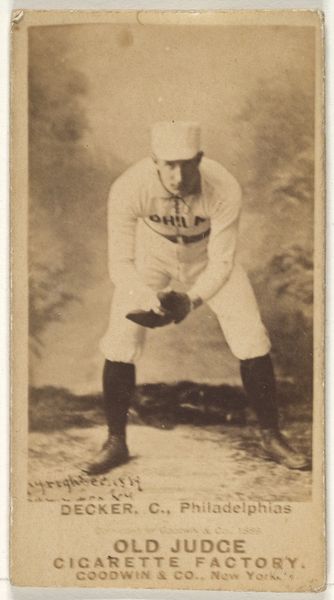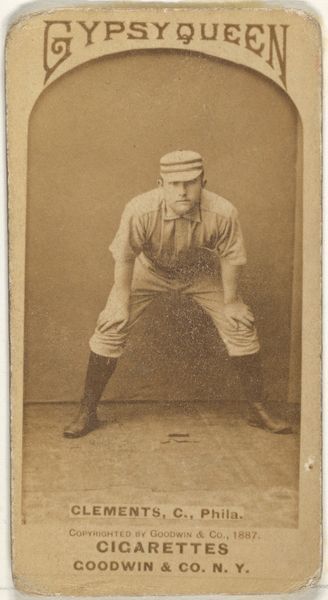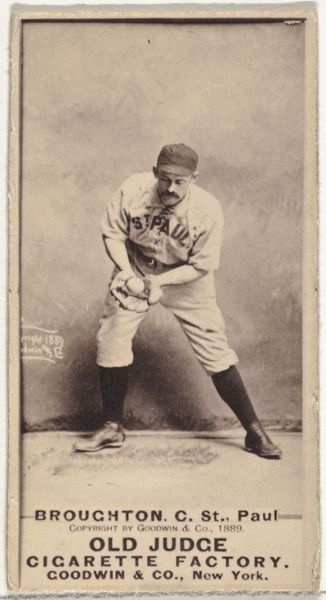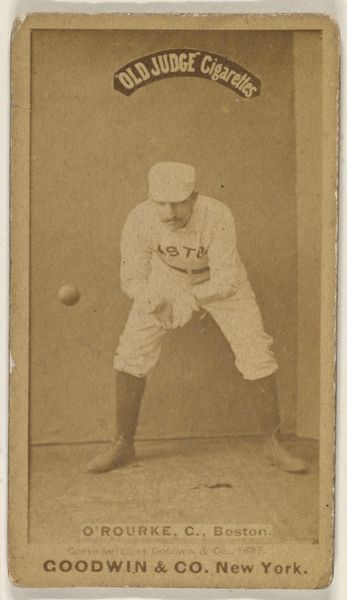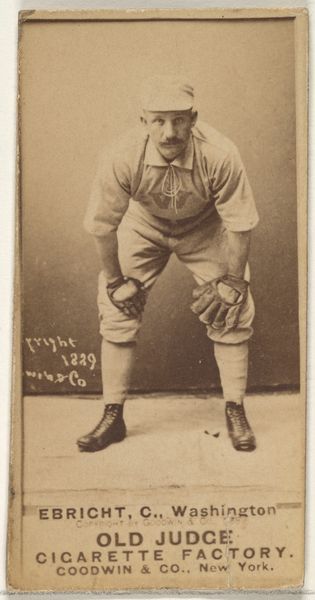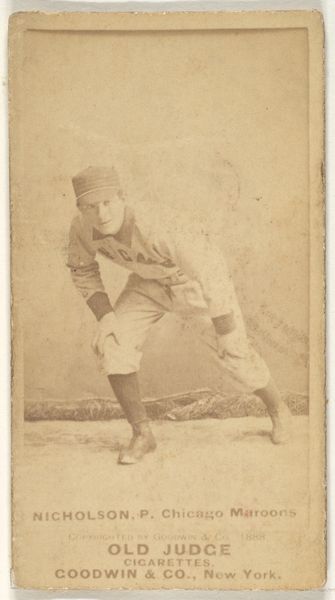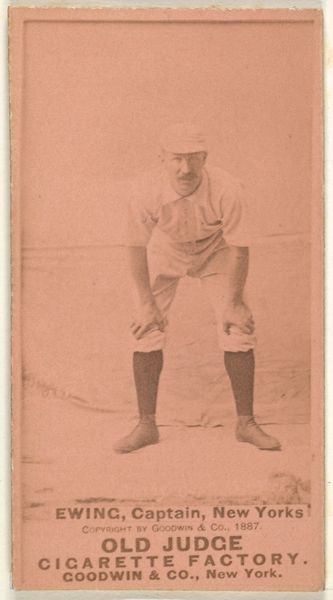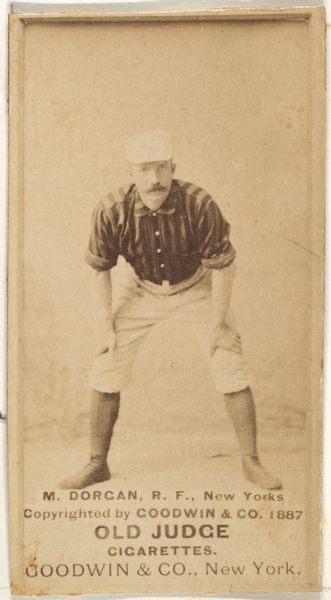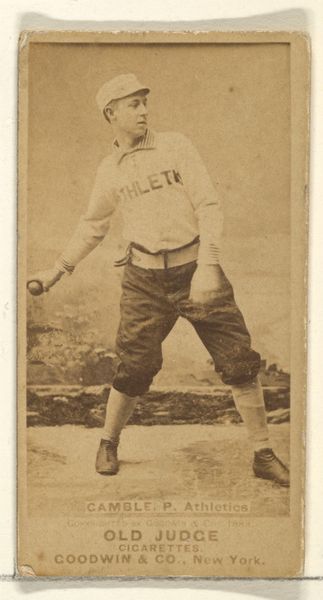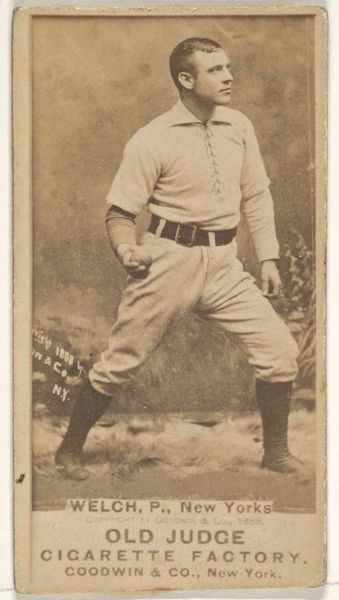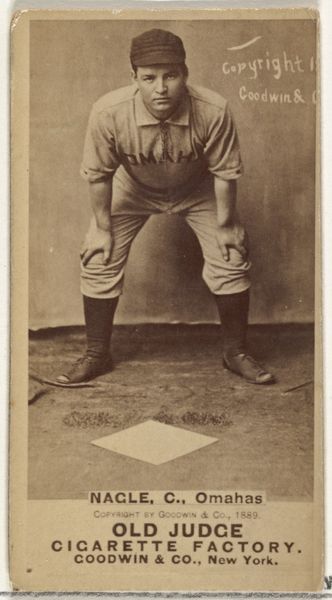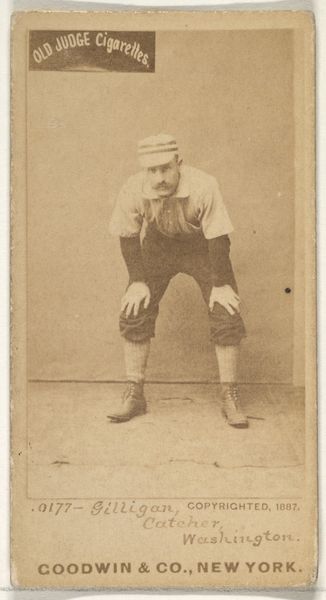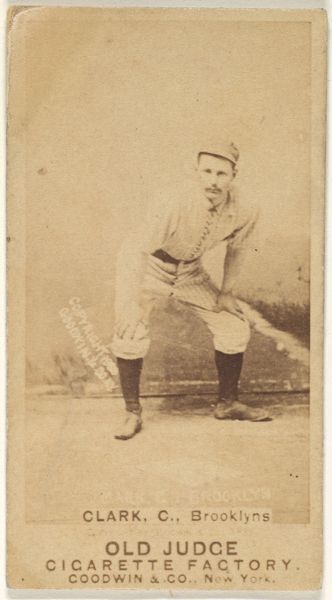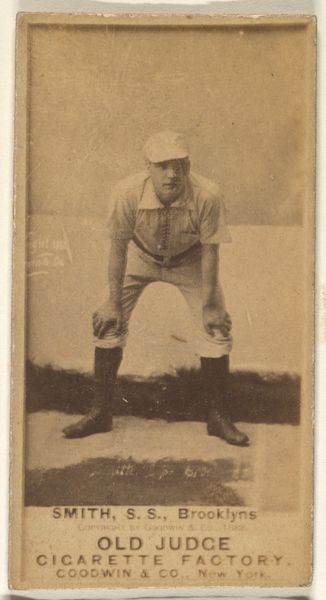
Edwin Forrest "Ned" Bligh, Catcher, Cleveland, from the Old Judge series (N172) for Old Judge Cigarettes 1889
0:00
0:00
print, photography
#
portrait
# print
#
impressionism
#
baseball
#
photography
#
men
#
athlete
Dimensions: sheet: 2 11/16 x 1 3/8 in. (6.9 x 3.5 cm)
Copyright: Public Domain
Curator: Looking at this piece, it feels… contained. Like a faded dream of someone else's past. It’s a tight composition, all sepia tones and soft focus, radiating stillness, like the silence before a big game. Editor: This is "Edwin Forrest 'Ned' Bligh, Catcher, Cleveland," a baseball card from the Old Judge series, produced around 1889 by Goodwin & Company for Old Judge Cigarettes. Part of a massive series of portraits printed as trade cards, now housed at the Metropolitan Museum of Art. These cards documented a burgeoning celebrity culture. Curator: So, it was a marketing tool, then? Advertising wedded to athleticism. Interesting that baseball players were already attaining that level of public recognition back then, where their image became a commodity. It’s kind of quaint when you look at it today. It gives off this innocent earnestness, as if we were meeting the players and their earnest gazes directly in sepia tone. Editor: Absolutely. Baseball was rapidly becoming the "national pastime," and these cards capitalized on that fervor, while simultaneously using sports stars to associate smoking with notions of rugged athleticism and masculinity. It highlights the ways the Industrial Age intersected with leisure culture. The image, in and of itself, seems to reinforce social norms through controlled public image presentation. Bligh's pose looks constructed, reflecting his celebrity as a controlled spectacle that encourages viewers to aspire for physical rigor and professional determination. Curator: Constructed, yes, but there's also something vulnerable in his stance. I imagine a quiet thoughtfulness. I mean, imagine finding that in a pack of cigarettes today. The anachronism itself is strangely comforting. Like stumbling upon a little time capsule from a more sepia-toned era. A time where baseball was the innocent distraction—unburdened by money and politics. A sort of imagined naiveté in pursuit of pleasure and determination. I realize this has never actually been the case! It feels that way here! Editor: Perhaps the supposed "innocence" stems from our current awareness. This piece reveals an enduring interest in our sports heroes; yet it also highlights an historical attempt to manipulate culture. While its nostalgic aesthetic charms and comforts viewers, its existence emphasizes sport’s role within a commercial enterprise, and therefore acts to re-assert the modern-day spectacle-driven culture and social control that dominates today. Curator: Hmm… perhaps our sepia toned memories can’t separate from the realities it spawned! Well, thank you for reminding me to not wax too nostalgic for any past moment!
Comments
No comments
Be the first to comment and join the conversation on the ultimate creative platform.
